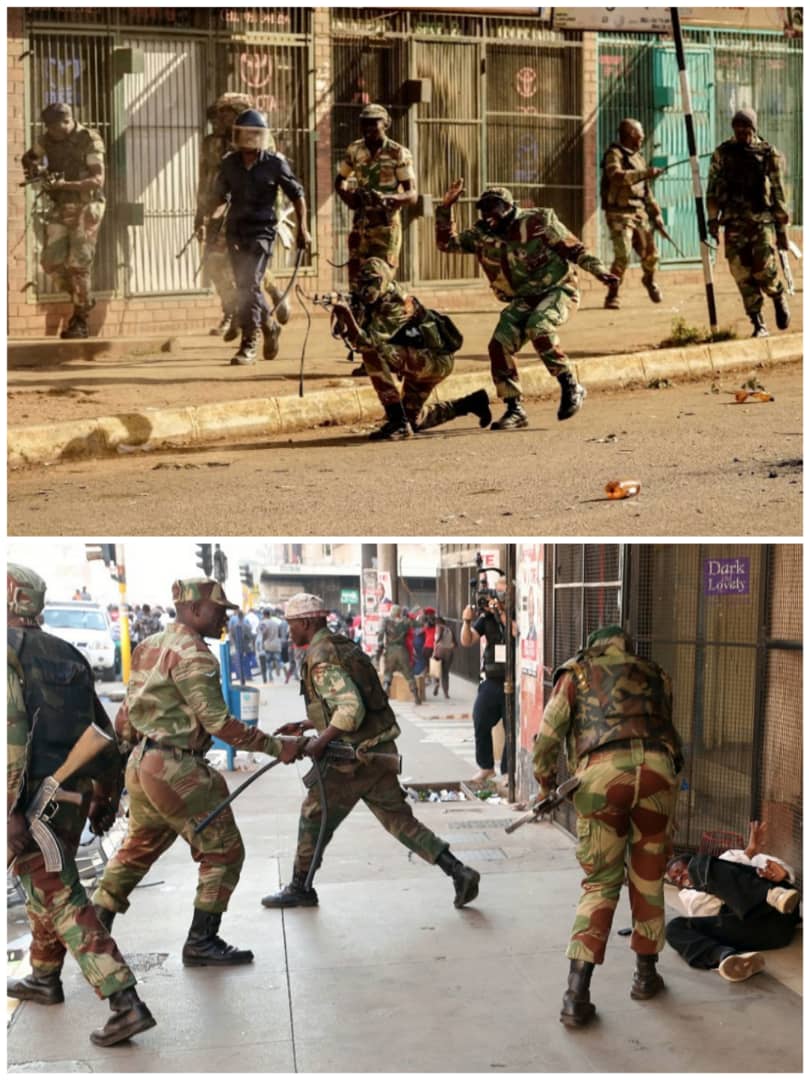Nkosentsha Khumalo
Six years after the August 1, 2018, incident where soldiers killed six civilians, the government has failed to implement the recommendations of the Montlanthe Commission.
Six civilians were killed, some of them bystanders who had nothing to do with the protests.
What is most worrying is that victims were shot in their backs proving that they were not retaliating but rather fleeing.
Pressures from home and abroad, Mnangagwa, who assumed power through a military coup, the same military that killed six unarmed people, set up a Commission of enquiry led by Former South Africa President Montlanthe to investigate the circumstances surrounding the violence.
At the time, Mnangagwa was projecting himself a reformist, keen on departing from former President Robert Mugabe’s authoritarian rule.
In the meantime the coup announcer, the late former Major General Sibusiso Moyo, who was then appointed Foreign Minister had initiated a re-engagement drive, pledging respect of Human Rights by Harare, among many reforms.
“The government has not fully compensated the victims, and some have not received anything,” said Wilbert Mandinde, Zimbabwe Human Rights NGO Forum programmes coordinator.
“We find it strange that the government says the President is not obliged to comply with the recommendations.”
“We wonder why the President instituted the Montlanthe Commission at all if he felt he had no obligated to compensate or to comply with the recommendations of that particular commission.”
Commission Recommendations:
| Recommendation | Status |
|---|---|
| Amend electoral law to shorten time for announcing presidential election results | Not implemented |
| Change circumstances for deploying military to contain civil unrest | Not implemented |
| Conduct audit of military orders and procedures for riot and law enforcement | Not implemented |
| Adopt contingency plans for dealing with emergency situations | Not implemented |
| Discourage use of live ammunition when quelling public protests | Not implemented |
| Retrain police in riot control, professionalism, and impartiality | Not implemented |
| Compensate victims and families of the deceased | Partially implemented |
| Establish a committee to assess compensation and set up a fund for affected individuals | Not implemented |
Mandinde further stated that his organization has gone to court and has had a case dismissed. There are still some more cases pending which are being pursued by the Human Rights NGO Form to force the government to compensate the victims or relatives of those killed.
Political Analyst Vivid Gwede said,
“The government set up the commission to pacify the masses rather than to correct the misdeeds that occurred.
“The government had seemingly bound itself through the Montlanthe Commission to do something about the August 1 killings. However, after the elaborate process the recommendations have not been implemented. It appears the Commission was meant to pacify the masses rather than to correct what happened.”
Gwede went on to say that government records on Human Rights have continued to go down the drain. This is evidenced by the recent arbitrary incarceration of over 100 political activists on trumped up charges. The government needs to make a total U-turn so as to correct, strengthen human rights institutions and practice.
Effie Ncube, National Consumer Rights Association (NACORA) spokesperson and Political Analyst said that the August 2018 shootings were still a pain in the flesh, people have not forgotten what transpired on that fateful day.
“Those who were supposed to be punished for the killings have not been punished. Institutions and procedures that were supposed to be reformed have not bee. And this means the likelihood of a similar incident or worse happening remains very high.”
Ncube continued,
“The failure to implement the recommendations could cost lives and lead to a deeper political crisis.”
The government signed the Zimbabwe Independent Complaints Commission Act into law in October 2022, but no security sector members have been prosecuted to date.
Zim GBC News©2024


